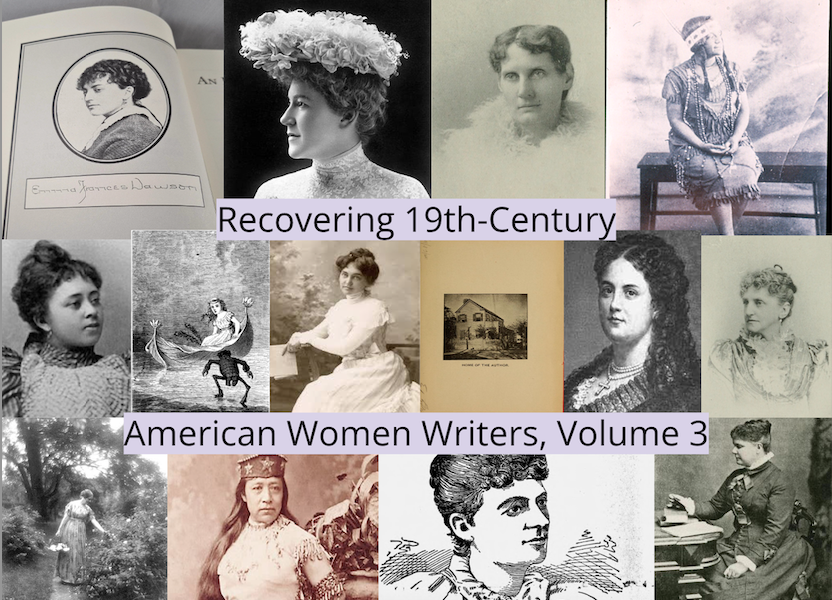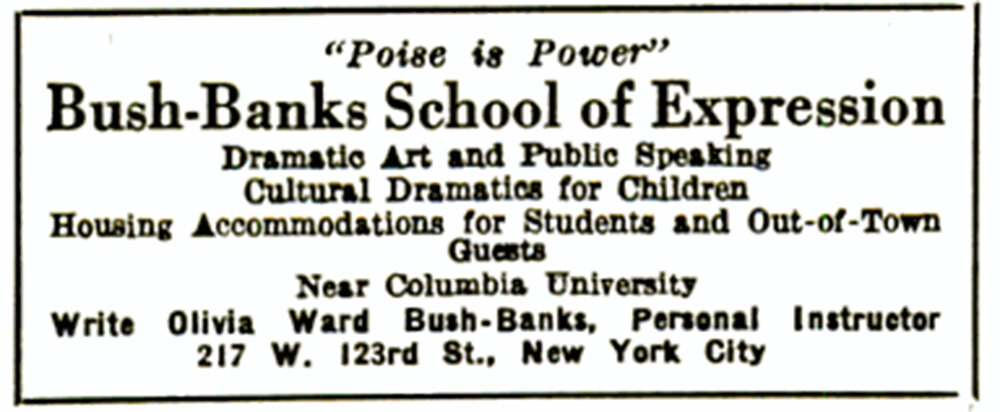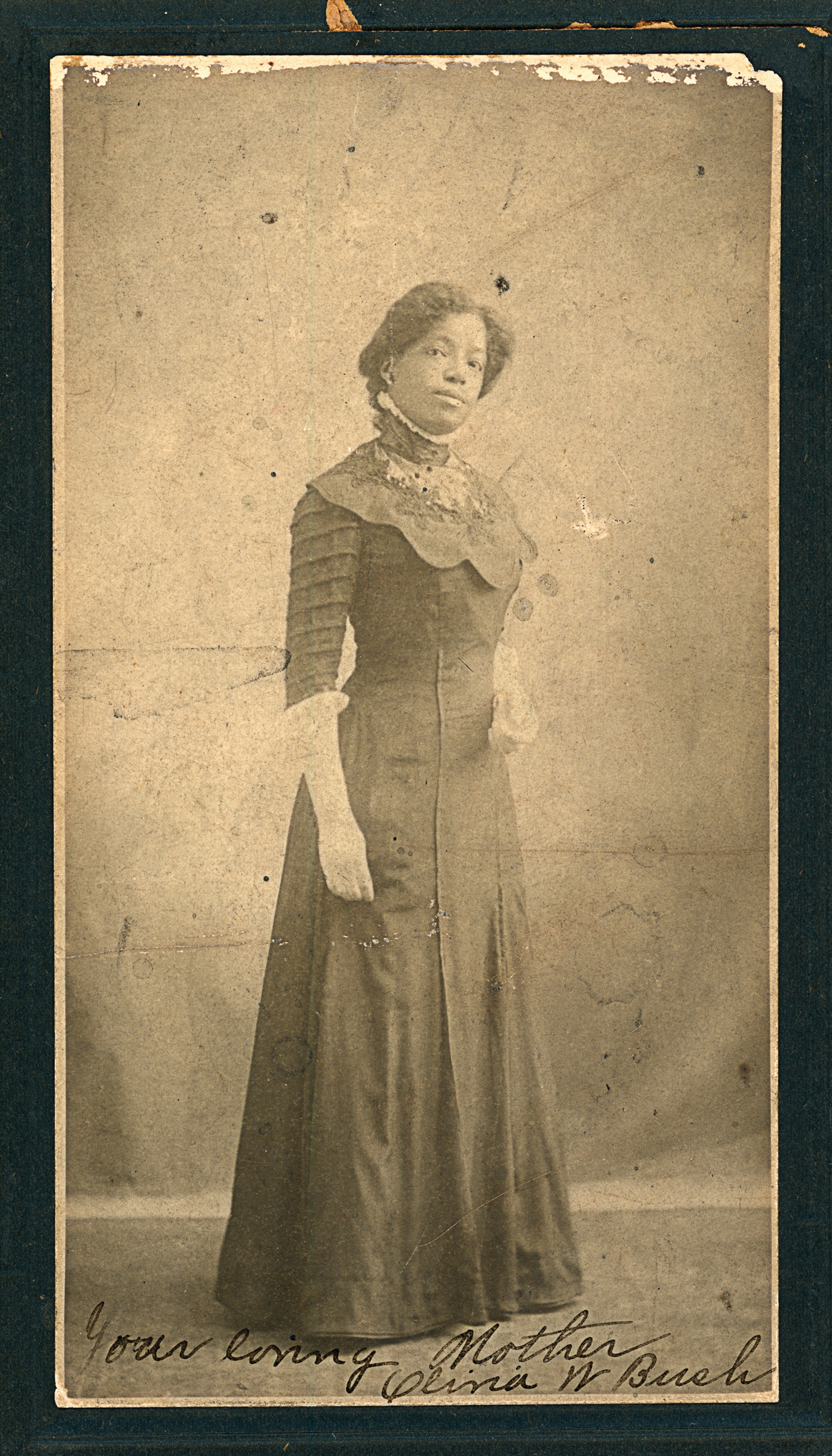
Olivia Ward Bush-Banks was born February 27th 1869 in Sag Harbor, New York. Ward was born to a family of African American and Native American Descent (Montaukett). She is an author of two books of poetry, Original Poems (1899), and Driftwood (1914). After the death of her mother, a very young Ward was sent to live with her aunt in Providence, Rhode Island where she studied nursing, poetry and drama. Her life stretches across the cusp of the 19th and 20th century and by the time of her death she had successfully published two books of poetry, was a supporter of The Colored American Magazine, served as a temporary Executive Secretary of the Chicago Branch of the N.A.A.C.P. and opened her own school of expression and the arts.
Recovered Works
- Original Poems Originally published in Providence, RI: Press of Louis A. Basinet, c1899.
- “Undercurrents of Social life” Published in The Colored American, 1900 Vol 2. No 2.
- Driftwood Originally published Providence, R.I. : Atlantic Printing Co., c1914.
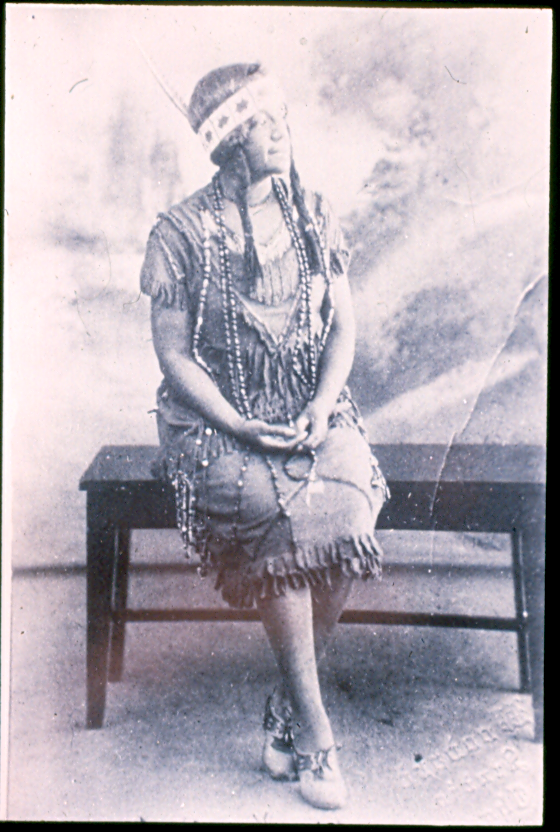
“I stand upon the haunted plain
Of vanished day and year,
And ever o’er its gloomy waste
Some strange, sad voice I hear.
Some voice from out the shadowed Past;
And one I call Regret,
And one I know is Misspent Hours,
Whose memory lingers” – Olivia Ward (Excerpt from “Voices“)
Recovering Original Poems
Ward’s poem collection, Original Poems, was published in 1899 by Louis A. Basinet in Providence, Rhode Island. In her collection she touched on topics of nature, life, death, and reminded us of the honor and praise that our African American ancestors deserve. In the poems “Crispus Attucks,” and “A Hero of San Juan Hill,” Ward martyrized the African American men who fought America’s war against the English and Spanish. She also offered the same homage to women in “Treasured Moments” where she exalted them as “earnest,” and “triumphant,” as they fought during the Temperance Movement and promised them a long loving memory and peace after death. Read the complete book of poetry, Original Poems here!
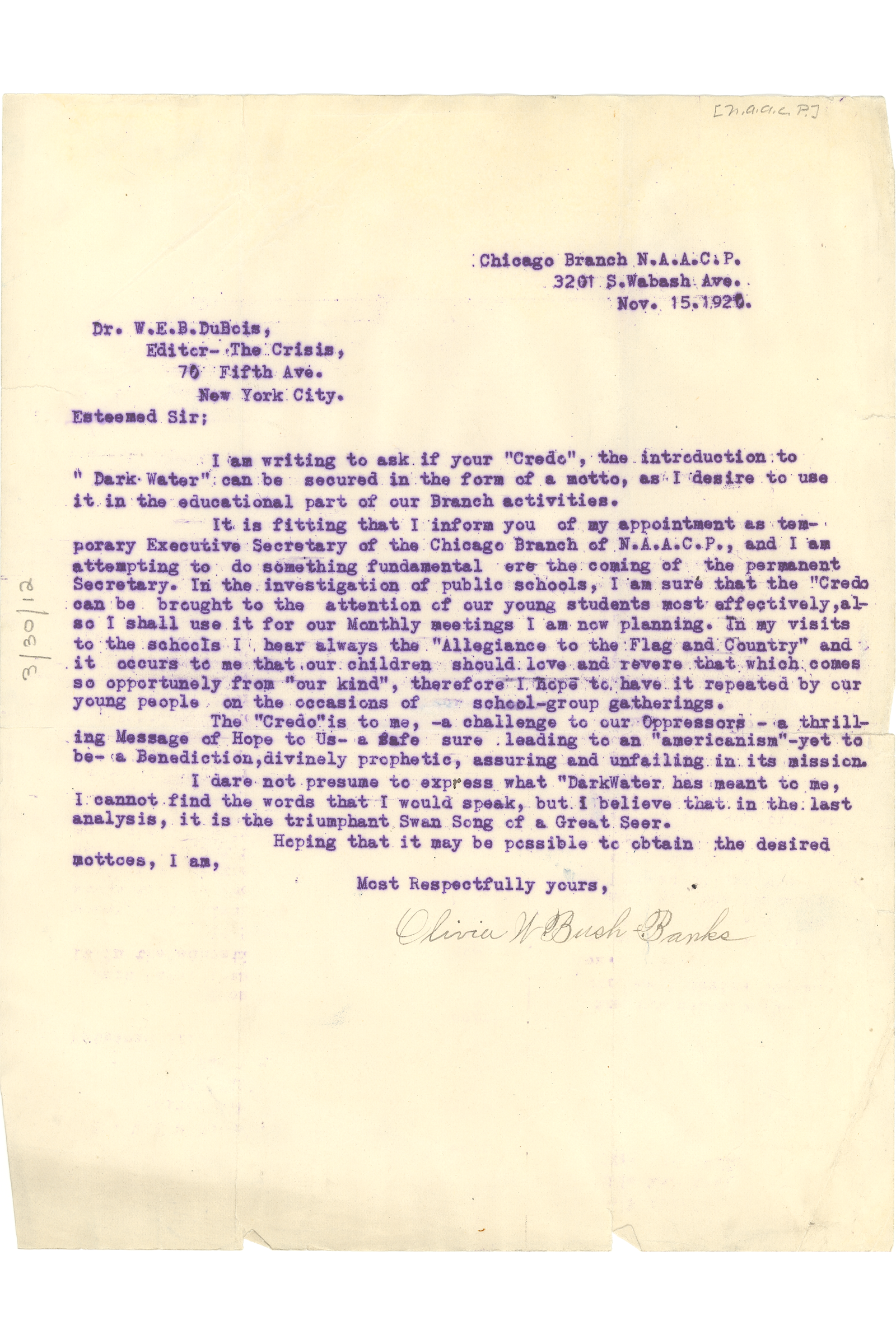
Why should we continue to recover?
There is no reason as to why we should not continue to recover Olivia Ward’s work. She as an African American and Native American woman who has suffered from the 19th century’s prejudice and racist acts against every racial minority group. Her work is important as it shows that through all the years of slavery and forced religion, Ward and her family were able to keep their heritage alive. In that very spirit, Ward has published works that honor all those that have fought and paved the way for her to be able to freely exercise her human rights. Ward is not only part of African American history, but also a part of Native American History.
Cited Sources
https://www.southamptonhistory.org/post/deep-dive-exploring-the-exhibits-24
https://www.brownalumnimagazine.com/articles/2022-06-21/roots-reconnected
http://coloredamerican.org/?page_id=1653
https://digital.library.upenn.edu/women/bush/poems/original-poems.html
https://www.platformspace.net/home/pzs0nkzwnfpp1yibr6f5hqyxtravn8
https://en.wikipedia.org/wiki/Olivia_Ward_Bush-Banks
https://credo.library.umass.edu/view/pageturn/mums312-b016-i110/#page/1/mode/1up
https://credo.library.umass.edu/view/pageturn/mums312-b016-i110/#page/1/mode/1up
